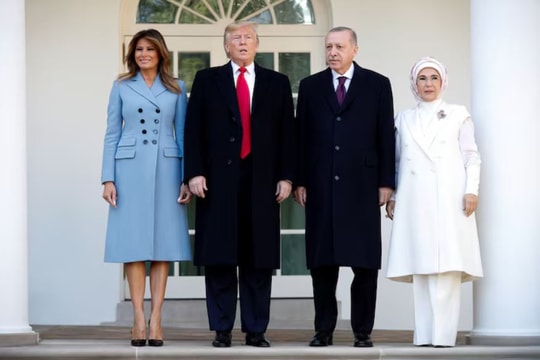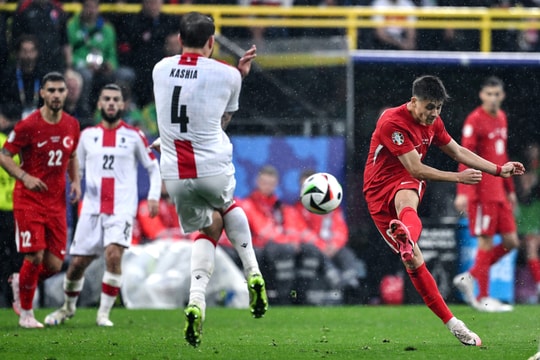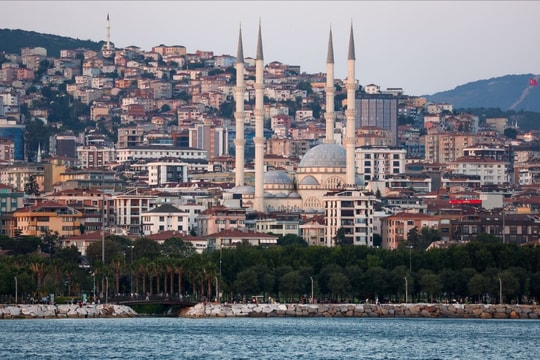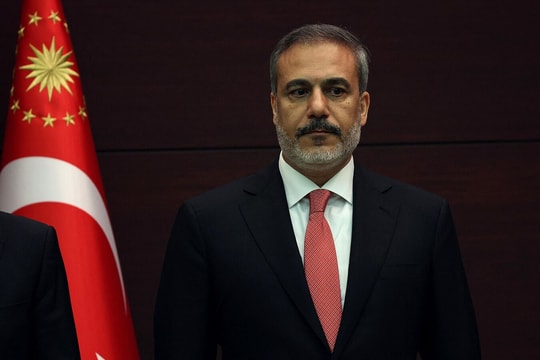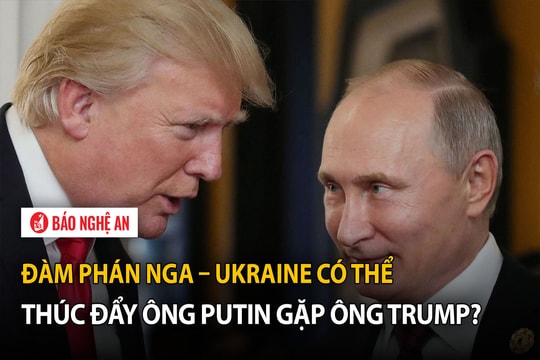Is Türkiye No Longer an Obedient NATO Ally?
(Baonghean.) - It is not a little known fact that President Recep Tayyip Erdogan sees Türkiye as the preeminent Islamic power in the Middle East. He also often accuses NATO ally the United States of trying to belittle his country, and dreams of a “greater Türkiye”. But does Mr. Erdogan think that Ankara has the right or need to possess nuclear weapons to consolidate its position?
Implicit statements
According to CNN, the Turkish leader mentioned this story last month, when he declared that “some countries have missiles with nuclear warheads, not just one or two. But we cannot have them. This is unacceptable to me.” He even mentioned Israel by name: “We have Israel close by, almost as a neighbor. They make other countries afraid by having these things. No one dares to touch them.”
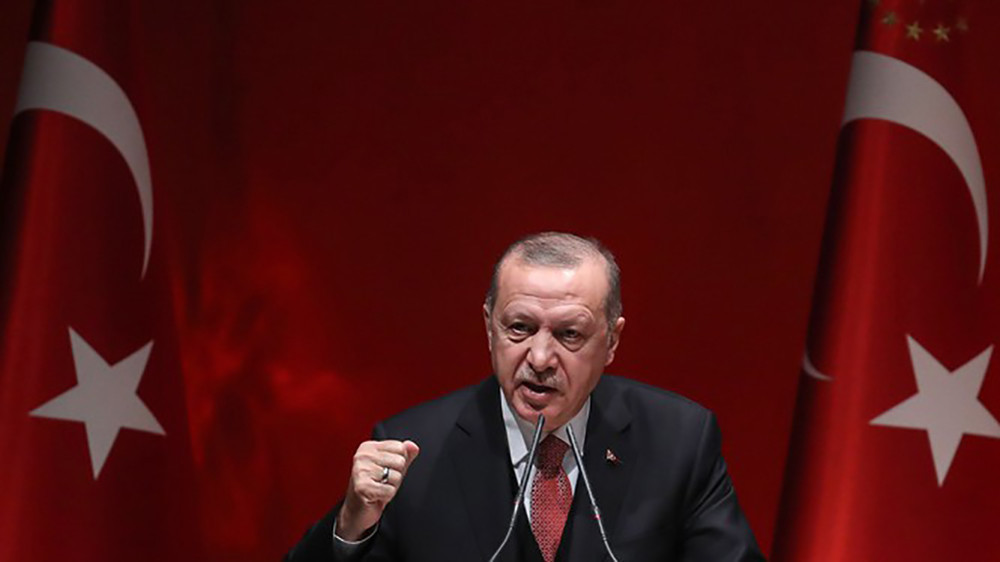 |
| Turkish President Recep Tayyip Erdogan. Photo: Newsweek |
It was the first time Erdogan had mentioned the issue in a speech at a rally of his ruling AKP party. It could be that the Turkish leader was trying to anger his nationalist base. But it could also be a warning that if Iran and Saudi Arabia make moves toward becoming nuclear-armed states, Türkiye will not stand idly by. Last year, Saudi Crown Prince Mohammed bin Salman told CBS that the Kingdom “does not want to have any nuclear bomb, but if Iran develops one, there is no doubt that we will do so immediately.”
And, in part, the Turkish leader’s statements may simply be a reflection of his famously blunt, sometimes provocative tone. Erdogan has compared modern Germany and Israel to Nazi Germany, and has threatened to unleash hundreds of thousands of Syrian migrants on European soil.
But it is a big leap from a few words at a party meeting to a nuclear development program. Türkiye is developing a nuclear energy program, but it is also a signatory to the Nuclear Non-Proliferation Treaty, and there is a big difference between energy and weapons.
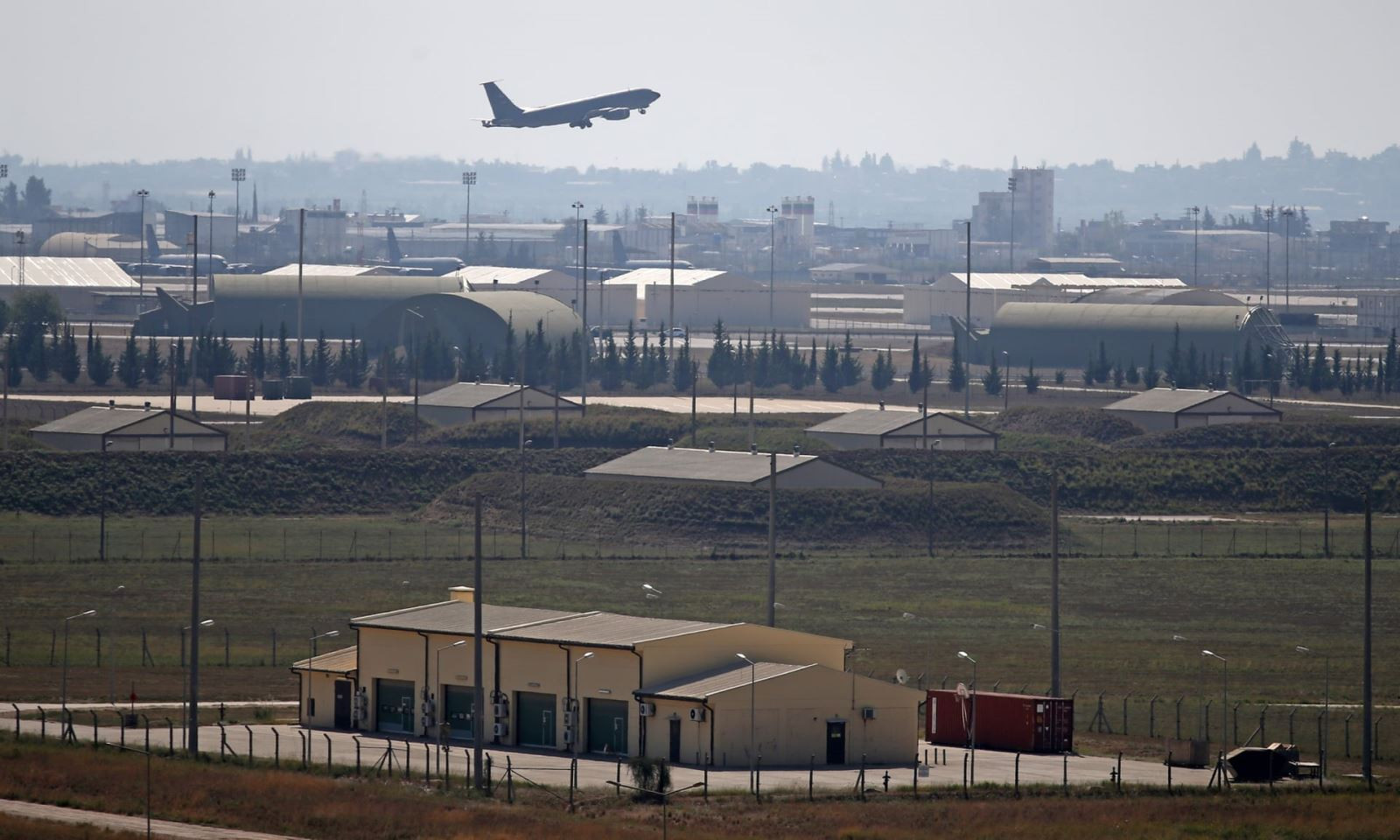 |
| A Turkish military plane takes off from İncirlik air base, which is home to 50 US nuclear bombs. Photo: Anadolu Agency |
Ziya Meral, a research fellow at the RUSI Institute in London, said that there is currently “no indication that Türkiye is preparing to pursue nuclear weapons, nor that we are witnessing a major shift in Türkiye’s decades-long policy of not pursuing nuclear weapons.”
“Realistically, it would take decades, a huge financial commitment, and significant global pressure, both of which would make nuclear weapons really expensive and damaging.”
Away from allies
Under Erdogan, Türkiye is no longer the obedient NATO ally that defended the alliance’s southern flank against what it sees as Russian “expansionism.” Partly in response to Europe’s insincere embrace, Erdogan envisions a new place for Türkiye, where it will choose allies and project power tens of thousands of miles from its shores.
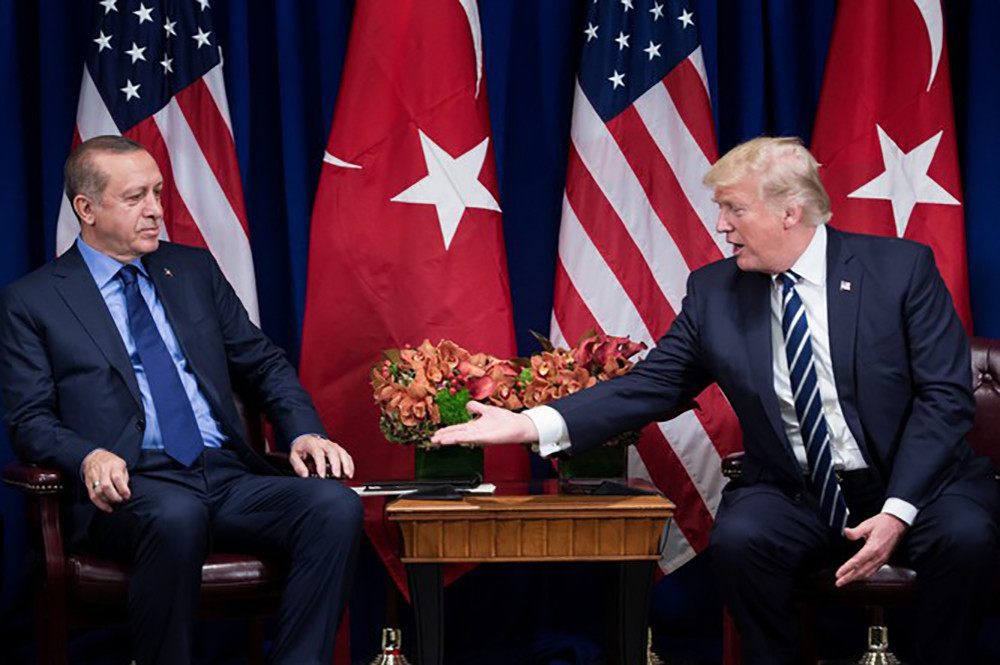 |
| To increase its global position, Türkiye was forced to separate from NATO, headed by the US. In the photo: Turkish President Erdogan and US President Trump. Photo: Politico |
The civil war in Syria has made Mr. Erdogan even more determined to demonstrate Türkiye's influence.
This expansionist role includes Ankara’s military presence in Qatar, its growing naval presence in the Red Sea, its support for the Libyan government against Khalifa Haftar’s forces, which are backed by Saudi Arabia and the UAE, and its largest overseas military base in Somalia. While these have not been particularly effective, the civil war in Syria has only intensified Erdogan’s determination to project Türkiye’s influence.
General HR McMaster, who served as US President Donald Trump’s national security adviser, sees this as the biggest geopolitical shift in the post-Cold War era. Last month, he said that under President Erdogan, Türkiye “wants to see itself moving away from Europe and more in the Middle East, more towards the East so that it can manipulate the situation to its own advantage.”
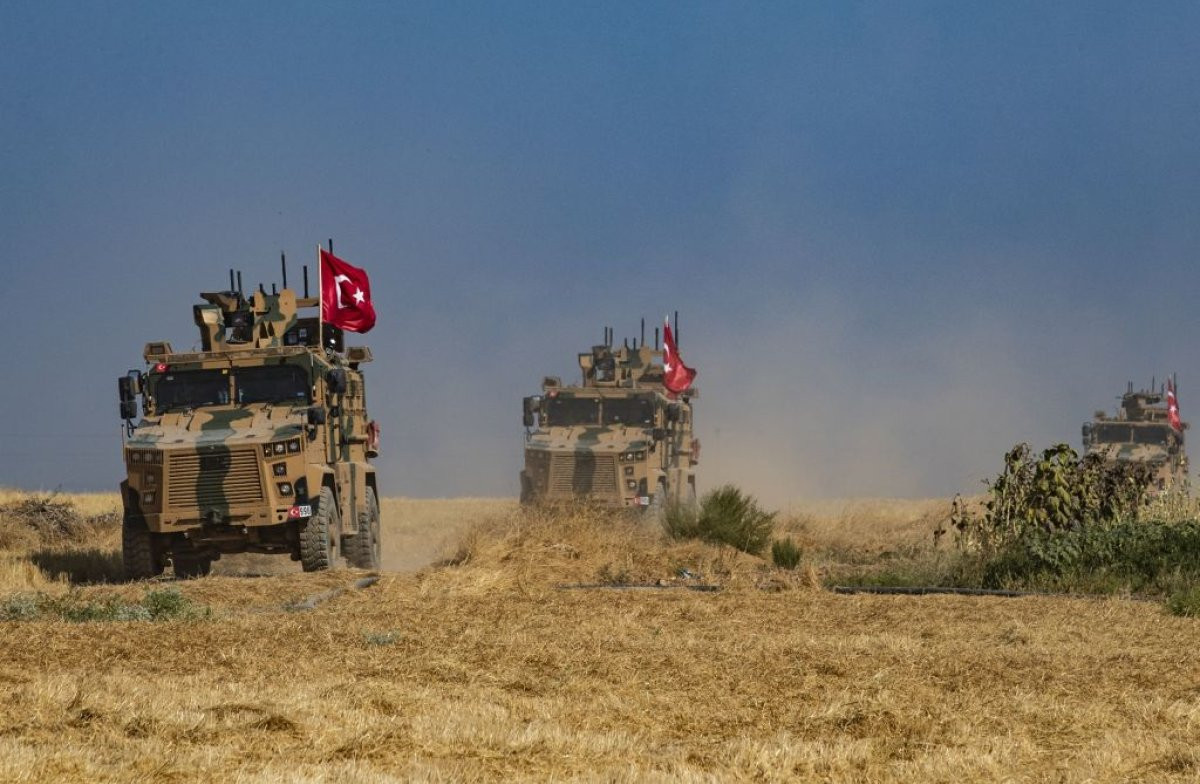 |
| Türkiye increases its influence in the Middle East. In photo: Turkish soldiers and armored vehicles cross into Syria. Photo: NBCNews |
Meanwhile, commentator Aaron Stein wrote on a foreign policy website that Erdogan “appears to be using nuclear weapons as a straw man to make a larger argument about Ankara’s place in the world, and how the American and Western systems that Turkey has long been unequally tied to are in need of change.”
“This is not a kidnapping country. This is Türkiye.”
It’s the same policy Erdogan has adopted when complaining about Western “investors” sabotaging Türkiye’s economy. Last year, as the lira fell in international markets, he said the failed coup plotters were trying to target Turkey through the economy. And in his spat with the Trump administration over the detention of American pastor Andrew Brunson, he declared: “This is not a kidnap-and-extortion country. This is Türkiye.”
CNN said that Erdogan is a nationalist from start to finish. He has been in power for 17 years, a middle power in a small circle around him; Ankara’s foreign policy is guided by him. They can change depending on tactical interests. But fundamentally, Erdogan sees the world as a series of competing powers – the US, China, Russia – that Türkiye must deal with to serve its interests. Obviously, this means “separating” from Washington.
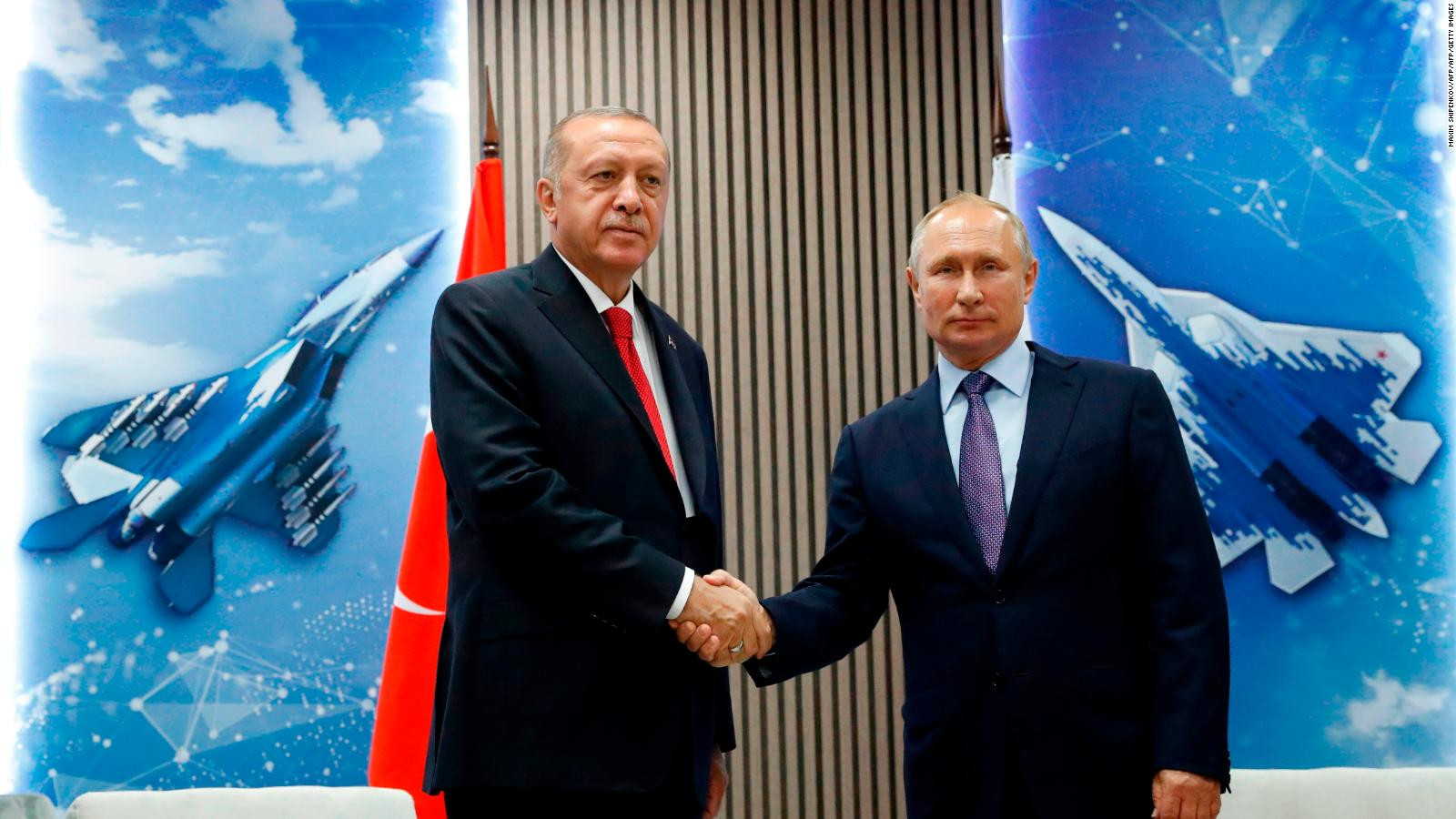 |
| Is Ankara gradually moving away from the US and closer to Russia? Illustration photo: CNN |
Richard Haass, president of the Council on Foreign Relations, said on Twitter earlier this month that the US “should have given up the idea” that Türkiye was a long-time ally. “The US should withdraw all nuclear weapons, reduce dependence on Turkish facilities, and limit intelligence sharing and arms sales. Also draw red lines in Syria,” he wrote.
More important than the provocative nuclear rhetoric in his speech to a loyal, supportive crowd was the image of President Erdogan and Putin enjoying ice cream together in August while praising Russia’s new Su-57 fighter jet. When he mentioned the US threat not to sell Ankara the F-35, Erdogan turned to Putin and asked: “So now we buy this?”
In short, as Stein asserts, Ankara will not leave NATO for now, but it will not turn east either. Instead, the current leadership will seek to break the existing rules that “get in the way” and want to change them. That, perhaps, would be the worse scenario for Washington.

